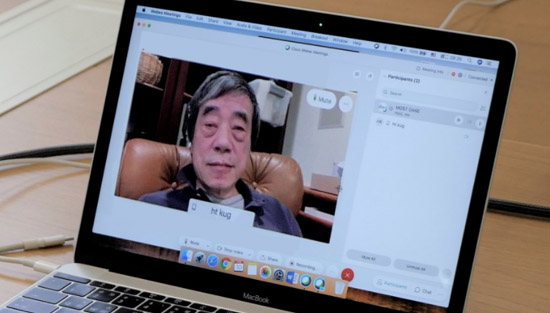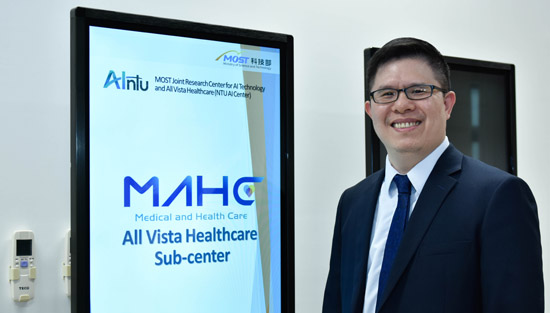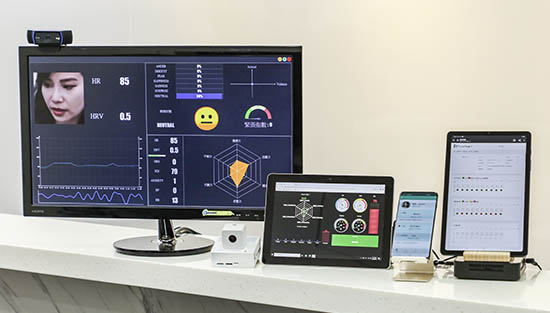
-
 Gain new insights through reviewing the past: Enhance Temperature-Sensitive Manufacturing Productivity and Quality through Industrial Big Data and Artificial intelligenceNovember 25, 2020High-precision temperature control process... Read More
Gain new insights through reviewing the past: Enhance Temperature-Sensitive Manufacturing Productivity and Quality through Industrial Big Data and Artificial intelligenceNovember 25, 2020High-precision temperature control process... Read More -
 New fast, accurate and secure neural network HarDNet — Demonstrate amazing applicationsNovember 18, 2020The Ministry of Science and Technology sponsors long-term basic... Read More
New fast, accurate and secure neural network HarDNet — Demonstrate amazing applicationsNovember 18, 2020The Ministry of Science and Technology sponsors long-term basic... Read More -
 MOST Winter Speech Tang Prize Laureate Dr. Jane Goodall on Sustainable Development Post-pandemicNovember 14, 2020Today, the Ministry of Science and Technology... Read More
MOST Winter Speech Tang Prize Laureate Dr. Jane Goodall on Sustainable Development Post-pandemicNovember 14, 2020Today, the Ministry of Science and Technology... Read More -
 CRISPR/Cas9: A revolutionary genomic engineering strategy in treating inherited hematopoietic disordersNovember 05, 2020Adapted from the defense mechanism of bacteria... Read More
CRISPR/Cas9: A revolutionary genomic engineering strategy in treating inherited hematopoietic disordersNovember 05, 2020Adapted from the defense mechanism of bacteria... Read More -
 AECOPD System for Precision MedicineNovember 04, 2020Ministry of Science and Technology (MOST) today holds a press conference... Read More
AECOPD System for Precision MedicineNovember 04, 2020Ministry of Science and Technology (MOST) today holds a press conference... Read More -
 NTHU Researchers Discover New Gastric Cancer Biomarkers for Tailored TherapyNovember 03, 2020HSINCHU, Taiwan, a research team led by... Read More
NTHU Researchers Discover New Gastric Cancer Biomarkers for Tailored TherapyNovember 03, 2020HSINCHU, Taiwan, a research team led by... Read More
Taiwan has officially become an aging society with more than 14% of the population over 65 years old in 2018. It is estimated that Taiwan will become a super-aged society in 2026, during which there will be over 20% of the total population being elderly. Meanwhile, many countries around the world are also facing the challenge of society aging. These challenges and the needs for telemedicine and mobile healthcare have driven the research and development of smart medicine and precision health.... Read More
"Smart healthcare" is currently one of the most popular topics in the world. Through the close integration of information and communications technology (ICT) and medical care, it drives better medical quality and public health management. The rise of smart medicine has not only subverted the traditional diagnosis, treatment and care models of the past, but has also promoted the development of Taiwan's biomedicine and related industries.
This month’s research highlights introduce Taiwan’s breakthroughs in the design of smart medical products: (1) The development of an integrated wearable device that monitors the blood vessels of patients undergoing dialysis in real time, which greatly improving the care of dialysis patients; (2) The use of an AI algorithm to analyze chest X-rays, for rapid screening of patients with potential nCoV-19 infection; (3) The use of automatic facial recognition computing to obtain physiological values such as heartbeat and blood pressure in real time; (4) The use of AI image calculation technology to assist with the diagnosis of intracranial hemorrhaging; (5) The utilization of multi-access edge computing (MEC) 5G mobile computing to enhance the interactive experience of virtual reality; and (6) The use of smart neural feedback training to improve chronic insomnia.
This world-leading research not only shows that the smart medical industry has a pioneering impact on diagnosis, treatment and healthcare, but also makes us look forward to the development of related industries in Taiwan.

Editor in Chief
Ying-Shao Hsu (National Taiwan Normal University)

Guest Editor
Tsair-Fuh Lin (National Cheng Kung University)












